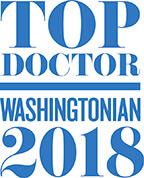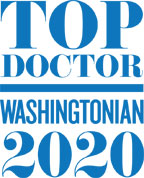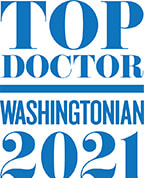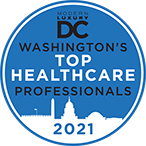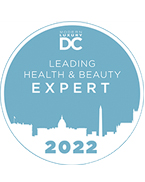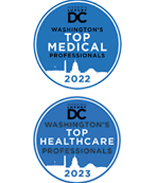Wondering what the eye doctors at See Clearly Vision have been up to? Our doctors are always busy, and lately we’ve been attending events locally and throughout the U.S. to share our knowledge and expertise on a range of common eye health issues.
We want to give you a glimpse into some of the ways we’ve been engaging with our communities – keep reading for highlights from the last few months, along with some tips to keep your eyes healthy!
Dr. Katherine McCabe Spoke On The Importance Of Eye Health
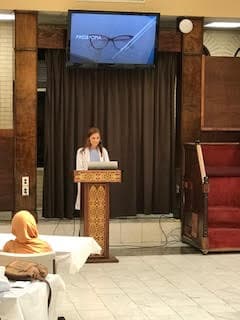
Like brushing your teeth or seeing your doctor for an annual physical, taking care of your eyes is another important part of staying healthy. One of the easiest things patients can do to keep up with their eye health is to see their eye doctor for regular eye exams.
Think of eye exams as your defense against conditions like glaucoma, macular degeneration, and diabetic retinopathy! Having regular eye exams is the only way your eye doctor can see what’s going on inside your eye and at the back of it.
Regular eye exams and eye health are something that See Clearly Vision takes very seriously. Dr. Katherine McCabe recently spoke to the public at the Dar Al Hijrah Islamic Center in Falls Church, VA about the importance of eye health. She was an invited speaker by the Prevention of Blindness Society of Metropolitan Washington.
What Can You Do To Prevent Blindness?
No matter how old you are, there are plenty of things that you can do to prevent blindness! The first step: healthy living. If you want to maintain a healthy vision at any age, take care of yourself. Follow some of these tips to stay healthy:
Don’t smoke.
If you do smoke, quit. Smoking has been shown to lead to higher incidences of cataracts, dry eye syndrome, age-related macular degeneration, and glaucoma.

Eat a healthy diet.
Stay away from processed and fried foods when possible, and eat plenty of fruits and vegetables. For your best vision, make sure to incorporate leafy green vegetables like kale, spinach, and collard greens.

Stay active.
If you want to be healthy at any age, you need to keep moving. A sedentary lifestyle is bad for your body, including your eyes. By exercising regularly, you can reduce your chances of developing problems that lead to eye diseases.

Keep your blood pressure under control.
If you have high blood pressure, this can increase your risk of glaucoma. If you are a diabetic, it can also increase your risk of developing diabetic retinopathy.

Keep your eyes safe when you’re in the sun.
If you’re outside, always wear sunglasses that protect your eyes from UVA and UVB rays. The sun’s rays can lead to the early development of cataracts.

Attend regular eye exams.
Depending on your age and overall health, attending regular eye exams every one to two years can help keep your eyes healthy and allow for the early detection of eye diseases.
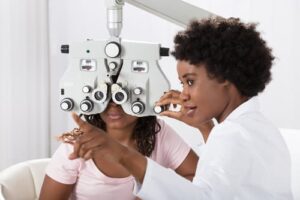
Dr. Katherine McCabe Discussed How Eyes Are Affected By Parkinson’s Disease
There are many symptoms often associated with Parkison’s Disease. Tremors, rigid muscles, speech changes, loss of automatic movements, and dementia are just a few of the many symptoms.
Many people do not realize that Parkison’s Disease often affects the eyes and visual system. This could include dry eyes, double vision, or even the worsening of walking or balance issues.
For some patients with Parkinson’s, it could lead to hallucinations as well. Commonly, Parkinson’s affects general mobility and an individual’s ability to get around. It can also impair the movement of the eyes.
If a patient with Parkinson’s has these symptoms, a doctor may prescribe corrective lenses or prisms, which are special lenses.
For patients with Parkinson’s Disease, it’s important to feel heard. That’s why Dr. Katherine McCabe spoke to the Parkinson’s Monthly Meeting at Sherwood Regional Library in December about eye conditions in relation to Parkinson’s. All patients deserve to feel like they are being heard and understood.
When doctors like Dr. McCabe speak at these monthly meetings, they help to educate patients on common issues that may not be frequently discussed.
World Keratoconus Day
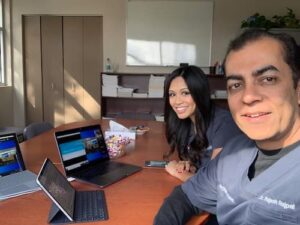
On November 10th, we honored those who have keratoconus and raised awareness about this common eye condition. The day is about raising awareness of keratoconus, education, and advocating for those that live with it.
Keratoconus is a non-inflammatory eye condition. With keratoconus, the cornea, which is normally dome-shaped, slowly becomes thinner and weakens over time.
This year, Avedro, which provides the only FDA approved Collagen Cross-Linking device and drug for the United States, flew out one of See Clearly Vision’s patients to their headquarters in Boston!
They were shown around town, got a meet and greet, and got the lay of the land. There was also a scheduled meeting at Avedro’s headquarters in Boston, where two of See Clearly Vision’s doctors, Christine Tagayun, M.D. and Rajesh Rajpal, M.D. (also the Chief Medical Officer for Avedro) joined in by conference call.
The best part, of course, is that Dr. Christine Tagayun performed Collagen Cross-Linking on the patient. Collagen Cross-Linking halts the progression of keratoconus and corneal ectasia.
Corneal collagen cross-linking is a non-invasive procedure that combines ultraviolet light with the KXL System and Photexa riboflavin. This combination halts the changes that keratoconus and ectasia cause progressively.
Corneal cross-linking is often most effective if it can occur before the cornea has become too irregularly shaped or before severe vision loss.
Looking for ways to improve your eye health?
See Clearly Vision’s doctors are always on the go. Whether they are at a speaking engagement or changing a patient’s life, this is a tiny taste of the many things that we do to support eye health throughout our communities!
Want to make your eye care a priority? Choose a world-class eye care practice and schedule an appointment at See Clearly Vision in Arlington or Tysons Corner!

